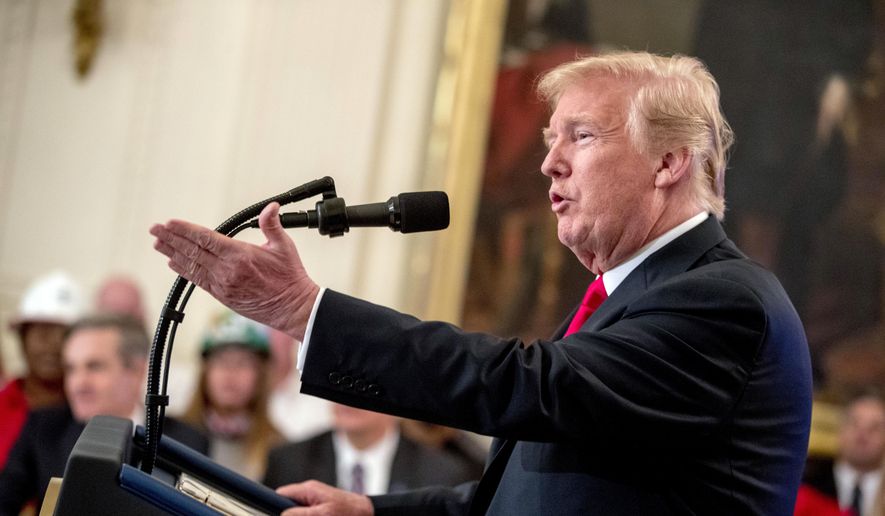President Trump criticized China and the European Union over tariffs and trade barriers Friday morning, accusing both of manipulating currencies and interest rates.
Mr. Trump argued that unfair economic policies taken while the dollar gets stronger is “taking away our big competitive edge.”
The Federal Reserve was also caught up in the president’s criticism, as Mr. Trump said raising interest rates undermined his efforts.
China, the European Union and others have been manipulating their currencies and interest rates lower, while the U.S. is raising rates while the dollars gets stronger and stronger with each passing day - taking away our big competitive edge. As usual, not a level playing field…
— Donald J. Trump (@realDonaldTrump) July 20, 2018
….The United States should not be penalized because we are doing so well. Tightening now hurts all that we have done. The U.S. should be allowed to recapture what was lost due to illegal currency manipulation and BAD Trade Deals. Debt coming due & we are raising rates - Really?
— Donald J. Trump (@realDonaldTrump) July 20, 2018
Mr. Trump has levied the accusations before, especially toward China.
The president cited the plight of soybean farmers in his trade-centered Twitter thread. The soybean crop already is facing economic trouble because of the ongoing trade war between the U.S. and its Asian rival.
Farmers have been on a downward trend for 15 years. The price of soybeans has fallen 50% since 5 years before the Election. A big reason is bad (terrible) Trade Deals with other countries. They put on massive Tariffs and Barriers. Canada charges 275% on Dairy. Farmers will WIN!
— Donald J. Trump (@realDonaldTrump) July 20, 2018
The president’s tweets suggest he won’t be backing down in the ongoing tit-for-tat tariff battle with either the EU, Canada or China.
On Monday, the U.S. filed separate disputes with the World Trade Organization against all three countries, as well as Turkey and Mexico. The complaints argue that while original tariffs imposed by the U.S. are justified by national security concerns, none of the retaliatory tariffs that followed were legal.
• Gabriella Muñoz can be reached at gmunoz@washingtontimes.com.




Please read our comment policy before commenting.